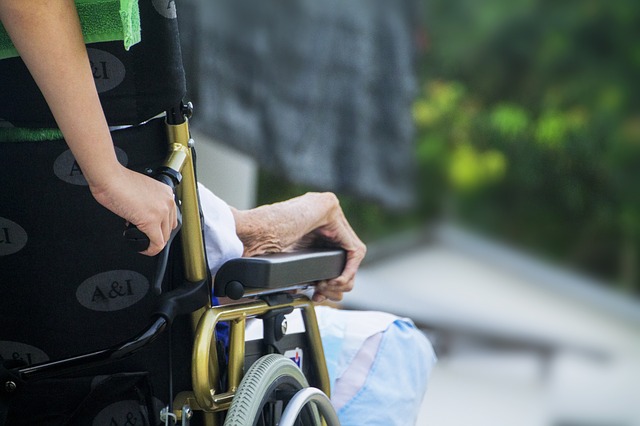
March 15, 2017; AARP
For those Americans over the age of 50 who have been wondering how they’ll fare with the proposed healthcare changes, the American Association of Retired Persons (AARP) says the American Health Care Act (AHCA) is not going to put many minds at ease.
AARP, the premier retired persons organization with 38 million members, doesn’t sugarcoat it. Their website reads, “Proposed Health Care Law Hammers People Over 50.” Several days earlier, AARP released a statement about opposing the healthcare bill that cited, among other reasons, “Older Americans need affordable health care services and prescriptions. This plan goes in the opposite direction, increasing insurance premiums for older Americans and not doing anything to lower drug costs.”
Key highlights from the bill that could affect older Americans:
- The AHCA would impose an “age tax” that allows insurance companies to charge people between the ages of 50 and 64 (those too young for Medicare) five times what they charge younger consumers. Currently, insurers can charge older consumers only three times as much.
- The Congressional Budget Office (CBO) analysis of the AHCA found that “premiums would rise 20 to 25 percent for a 64-year-old. That means premiums for a 64-year-old earning $26,500 would increase by almost $13,000 in 2026, from $1,700 to $14,600.” This increase in premiums is likely out of reach for many people.
- The CBO report shows that 14 million Americans will lose coverage next year, increasing to 24 million in 2026.
Additionally, the CBO report suggests that for the low-income near-elderly (55–64 years old), the cost reductions set forth in the plan will not be enough to offset the elimination of the Medicaid expansion and the loss of the Affordable Care Act’s cost-and-income-based premium tax credits, to name a few.
Some folks may argue that AARP, as a typically left-of-center organization, has a natural opposition to the AHCA, but the group is not alone in its analysis. Both the American Medical Association (AMA) and American Hospital Association (AHA) do not support the AHCA as it’s currently proposed. Each points out the harm the AHCA is expected to impose on vulnerable populations. Other smaller and specialty healthcare associations have also expressed deep concerns with the bill, including the American Psychiatric Association.
Sign up for our free newsletters
Subscribe to NPQ's newsletters to have our top stories delivered directly to your inbox.
By signing up, you agree to our privacy policy and terms of use, and to receive messages from NPQ and our partners.
Older Americans on both ends of the political spectrum say they’re worried about what the future holds, too. A Floridian Trump supporter who owns a small business; a woman in Oklahoma who works four part-time jobs; a retired factory worker in North Carolina whose premiums would go up $17,000 under the new plan—none are feeling warm fuzzies over this.
And what about those over the age of 50 who have healthcare through their jobs? The near-elderly may be out of luck on that, too. Without an employer mandate and with exchange tax credits, some employers will drop their insurance plans. The employers with the greatest incentive to drop their coverage? Those with the most expensive workers to cover—near-elderly, low-wage employees.
Unfortunately, giving older Americans the shaft in healthcare is nothing new. The Kaiser Family Foundation funded a report by The Urban Institute on health coverage for near-elderly Americans back in 2004. Among their findings then:
Extending coverage to this group [ages 55–64 making less than 200 percent of federal poverty line] could be done either through providing access to Medicare, or creating a new group purchasing arrangement. Expanding Medicaid to even subgroups of the near elderly seems less feasible at this time given that the near elderly are a high-cost population and states are struggling to maintain their programs’ coverage in the face of unparalleled fiscal crises. Alternatively, tax credits for the purchase of non-group health insurance are unlikely to help many of the near elderly unless the value of the credit is substantially adjusted for age or health status.
Becoming eligible for Medicare at age 65 is a rite of passage for most Americans. Many near-elderly Americans in the past went without healthcare until they reached that magical age. That was one of the plights Obamacare—warts and all—aimed to alleviate. Without employing some of the features from the Kaiser/Urban Institute report (expanding Medicaid, for one), near-elderly people will be more at risk of mortally crucial health issues. That is, they are at greater risk of earlier death than if they could afford healthcare and health insurance.—Angie Wierzbicki













